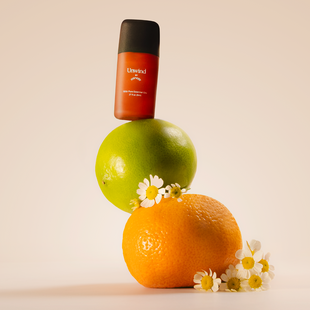We know you would do anything for your furry friend… Anything! It is no surprise that you may have questioned whether essential oils are safe for pets as you delve into the wonderful world of essential oils. So, are essential oils safe for pets?
Essential oils are safe to use around pets if you follow a few simple best practices to temper your pets exposure. In addition, there are certain essential oils you should never use around your dog, cat, or bird, which we will discuss in the following sections.
Are Essential Oils Safe for Pets?
Essential oils are hardly a new phenomenon. These potent elixirs have been used for centuries for a wide range of personal care products and healing ointments. While essential oil use is considered safe for humans, are essential oils safe for pets?
Essential oils should never be applied topically to your pet’s skin, nor should you allow your pet to ingest essential oils. If you would like to entertain the therapeutic use of essential oils for your pet, you should always consult with a veterinarian before use.
As far as using electronic diffusers, reed diffusers, essential oil candles, and other modes of releasing essential oil microparticules into your home space, this practice is considered safe to use around pets within reason.
Your feline friend or oversized lap dog have an incredibly heightened sense of smell, far superior to that of a human. As a result, essential oils are particularly potent to your pet and can cause serious harm if not tempered. Diffusing essential oils in your space should be done with caution, and by following the guidelines outlined in the next section.
How to Use Essential Oils Safely with a Pet

Are essential oils safe for pets? Yes, if you use them safely and follow a few, simple tips to keep your ride or die friend healthy and happy.
As we mentioned earlier, your furry friends’ sense of smell is far superior to your sense of smell; a seemingly light diffusion of your favorite essential oil can induce stress and anxiety in your cat or dog. The best way to create a safe environment for your pet while experiencing the benefits of essential oil diffusion is to only diffuse essential oils in rooms with adequate ventilation or in rooms where your pet can easily leave the room if the scent overwhelms. Avoid prolonged diffusion when around your pet, keeping diffusion periods between 10 and 15 minutes.
In addition, if you enjoy the therapeutic benefits of a specific essential oil, for the sake of your pet it is best to cycle this essential oil every 2 weeks. This practice will prevent your pet from excess exposure to a specific essential oil and allow their body a “breather” or a rest period, if you will.
Lastly, it is important to keep your essential oils and diffuser safely out of reach of your pet to avoid accidents or spills that can harm your pet. The same holds true with small children and infants. It is always best to keep your diffuser in a safe location only accessible to a responsible adult.
Not all essential oils are created equal in the eyes of your loyal companion. There are some essential oils that are off limits to dogs, cats, and even birds.
The “No-Go” List of Essential Oils
If you follow the best practices for using essential oils safely with a pet, essential oil diffusion is harmless to your pet. There are, however, certain essential oils you should avoid diffusing in your home since they are considered toxic to specific species.
Dogs
Some essential oils are poisonous to your furry, loyal friends. While these essential oils are considered toxic when used topically or if ingested, it is best to avoid diffusing these essential oils around your four legged friend.
- Cinnamon
- Clove
- Juniper
- Pennyroyal
- Pine
- Rosemary
- Tea Tree*
- Wintergreen
- Ylang Ylang
The Journal of the American Veterinary Medical Association (AVMA) analyzed 10 years of toxicology data reported by the ASPCA. Researchers concluded that highly concentrated tea tree oil should never be used on cats or dogs. According to the ASPCA, just 7 or 8 drops of tea tree essential oil is all it takes to cause serious issues with your sweet, furry pal.
Cats
Cats are particularly sensitive to essential oils. If you have a feline friend dwelling in your home, you should exercise extreme caution when using essential oils. The following essential oils are toxic to cats:
- Birch
- Cinnamon
- Citrus
- Clove
- Eucalyptus
- Lavender
- Oregano
- Pennyroyal
- Peppermint
- Pine
- Spruce
- Tea Tree
- Thyme
- Wintergreen
Birds
If you have a sweet songbird in your home, you should avoid diffusing essential oils altogether. Birds have very sensitive lungs, which make them susceptible to issues related to essential oil exposure.
The Signs of Essential Oil Poisoning in pets
If you choose to diffuse essential oils in your home, it may be helpful to know the signs of essential oil poisoning in pets. Common symptoms of essential oil poisoning in pets includes (but is not limited to):
- Difficulty breathing
- Lethargy or observable weakness
- Vomiting
- Tremors
- Difficulty walking or wobbliness
- Coughing or wheezing
- Watery nose or eyes
- Unusual drooling
- Pawing the mouth or face
If you believe that your pet has inhaled excessive essential oils or known toxic essential oils, take your pet outdoors immediately for fresh air. While your pet is outside, open the windows in your home and air out the room before allowing your pet back inside.
If your pet came into contact with essential oils on their skin or fur, take them to the bathtub and wash the spot and surrounding area with dishwashing soap. Rinse with warm water. Monitor the exposed skin over the next 24 hours and schedule an appointment with your veterinarian if you notice any redness, swelling, scabbing, or persistent irritation.
If you believe your pet ingested an essential oil, do not induce vomiting. Take your pet to the local pet hospital for care. Make sure to bring the bottle of ingested essential oil with you to the clinic for analysis. You can also call the Pet Poison Helpline at 855-764-7661 for 24/7 assistance.






















